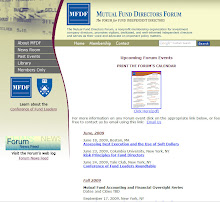This bill will amend the Troubled Assets Relief Program (TARP) provisions of the Emergency Economic Stabilization Act of 2008 (EESA) to strengthen accountability, close loopholes, increase transparency, and require Treasury to take significant steps on foreclosure mitigation. It further requires that Treasury act promptly to permit the smaller community financial institutions that have been shut out so far to participate on the same terms as the large institutions that have already received funds.
Title I of the bill proposes modifications to TARP's reporting, monitoring, and accountability, and includes provisions for restricting executive compensation for entities receiving funds under TARP. Title I also addresses: (1) representation of the U.S. Government on boards of entities receiving TARP funds, (2) a directive to make TARP funds available to smaller community institutions, (3) Changes to structure and authority of TARP board, (4) warrant requirements for entities receiving TARP funds, (5) removal of impediments to firms' wathdrawal from TARP, and (6) clarification of the status of capital injections under the program.
Title II addresses foreclosure relief and conditions the second $350 billion on the development of "a comprehensive plan to prevent and mitigate foreclosures on residential mortgages" by March 15, 2009. The remainder of the Title prescribes the parameters of the foreclosure relief program.
Title III clarifies and confirms Treasury authorization to provide assistance to automobile manufacturers under the TARP.
Title IV clarifies that the TARP may be used for additional purposes like: (1) Consumer Loans, (2) Commercial Real Estate Loans and Mortgage Backed Securities, and (3) Municipal Securities.
Title V modifies the Hope for Homeowners program implemented by HUD.
Title VI requires the Treasury to develop a program outside of TARP to stimulate demand for home purchases and clear inventory of properties, including through ensuring the availability of affordable mortgages rates for qualified home buyers.
Title VII, among other things, makes permanent the increase in deposit insurance coverage for banks and credit unions to $250,000, which was enacted temporarily as part of the Emergency Economic Stabilization Act and is scheduled to sunset on December 31, 2009, and includes an inflation adjustment provision for future coverage.
The press release annoucing the introduction of the bill is available at: http://www.house.gov/apps/list/press/financialsvcs_dem/press0109093.shtml
The full text of HR 384 is available at: http://www.house.gov/apps/list/press/financialsvcs_dem/hr384.pdf





